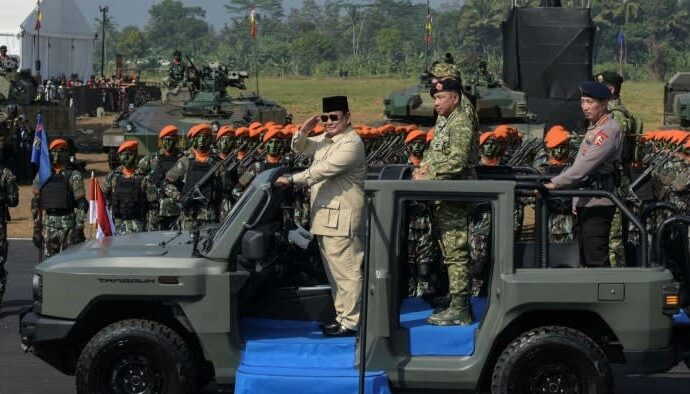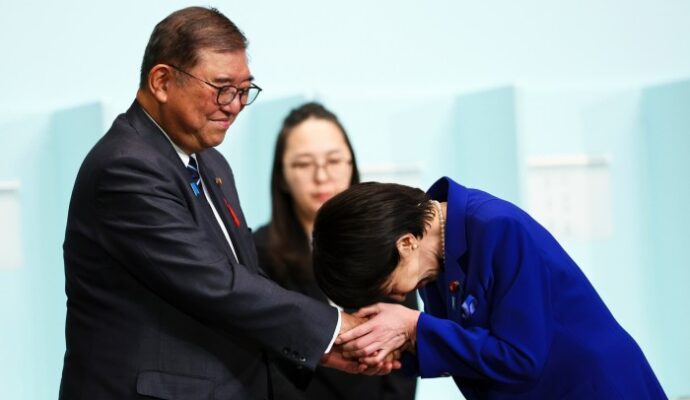Unlock the White House Watch newsletter for free
Your guide to what Trump’s second term means for Washington, business and the world
The EU must strengthen its security and defence partnerships with Asian countries despite pressure from the Trump administration to focus only on Europe’s domestic security, Brussels’ chief diplomat has said, pitching the bloc as a “reliable partner” in contrast with the US.
Kaja Kallas told the Financial Times in an interview that counterparts in democratic Asian nations were asking the EU to remain engaged as a security actor in the region, in contrast to calls by senior US officials for European countries to reduce their military operations in the Indo-Pacific.
Kallas, the EU’s high representative for foreign and security policy, said the bloc’s concerns over freedom of navigation and free trade in Asia were legitimate reasons for European actors to be engaged in the region.
“We are concerned about our supply chains and trade routes . . . it’s also our security and that’s why I’m saying that these are increasingly interlinked, you can’t separate one from the other,” she said.
Among the EU’s Asian partners, “the worry is of increasing insecurity [and] whom to trust”, Kallas said.
The Pentagon has told European nations it believes their armies should take more responsibility for security in their own region to free up the US military to focus more on China and the Indo-Pacific, a message championed by Elbridge Colby, US under-secretary of defence for policy.
US defence secretary Pete Hegseth said in May at the Shangri-La Dialogue, a gathering of Indo-Pacific defence and security officials in Singapore, that the US would “shift our focus to this region . . . as Europe steps up and takes greater ownership for its own security”.
But Kallas, who spoke ahead of an Asian tour that begins in Japan on Tuesday and will include an EU-China summit in Beijing on Thursday, said ministers across the Indo-Pacific had in recent months specifically raised the impact of US President Donald Trump’s tariffs on their economies as a reason to seek closer relations with Brussels and European capitals.
“What the Asian partners are saying, many of them have been genuinely hurt and don’t understand [given] their good relationship that they have had with Americans until now,” she said.
“They are turning to us as we are the reliable partner . . . What they are saying is that, you know, if agreements [with the US] on trade issues can be put aside, then why should we trust the agreements that we have on security?” she added.
The EU has formal security and defence partnerships with Australia, Japan and South Korea, and in 2020 signed a broad “strategic partnership” with the Association of Southeast Asian Nations regional group, which includes co-operation on counterterrorism and maritime and cyber security.
Kallas said the EU was “not the traditional security actor”, but Asian countries had been raising the possibility of working with it on issues such as maritime security, freedom of navigation and cyber security.
French President Emmanuel Macron, speaking at the Shangri-La Dialogue in May, called for a “coalition of action” between European and Asian countries.
Kallas, who will take part in Thursday’s summit with Chinese President Xi Jinping and the EU’s joint presidents Ursula von der Leyen and António Costa, said concerns about issues such as China’s trade policies and critical support for Russia’s war against Ukraine remained hurdles to closer relations.
“China is telling us that they want to be good partners and they are interested in our partnership,” she said. “If you want to have a partnership, then you also listen to the worries that the other side has.”
Asked whether the EU and US were co-ordinating their stances towards Beijing, she said: “We have our own China policy and these are the concerns we have.”


